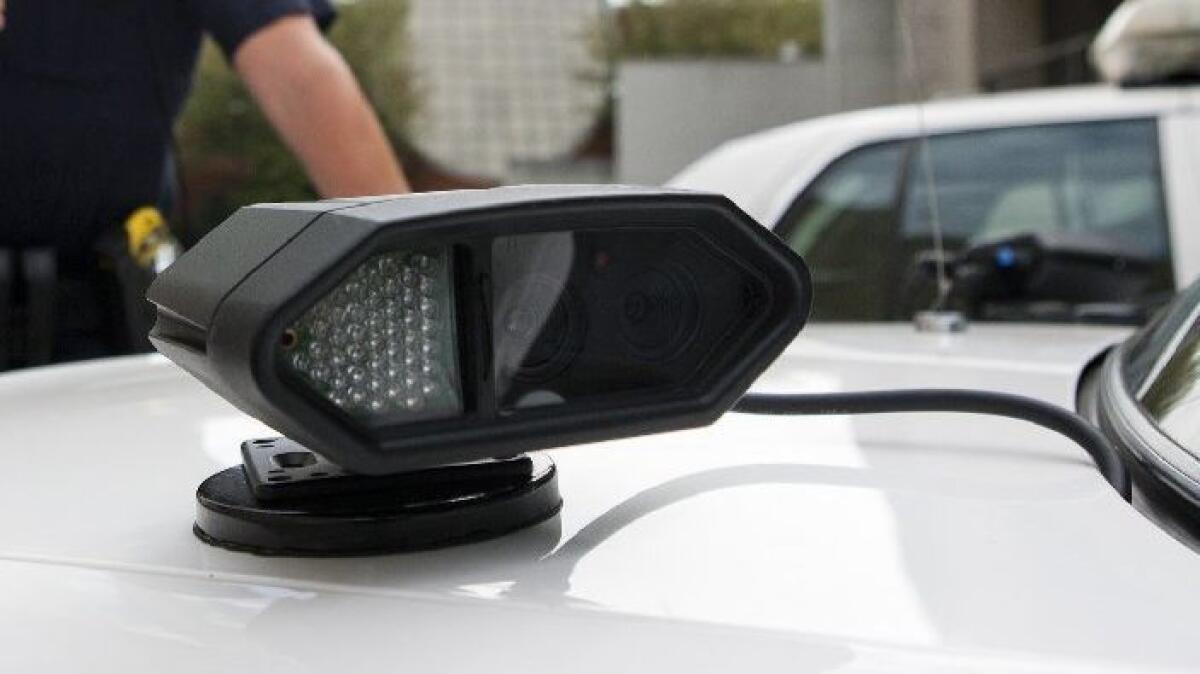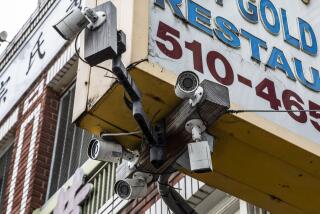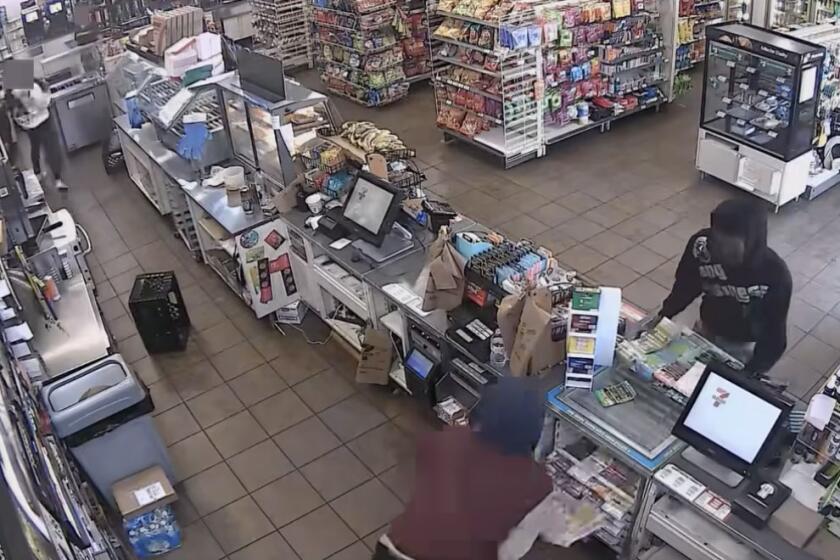These three Orange County malls share shoppers’ license plate data with local police, but not ICE

When shoppers drive into the parking lots of three Orange County malls, a system of cameras reads and records their license plate information. The data — plate number, location, date and time — are logged into a searchable database that’s then provided to local police departments.
The practice began sometime before Christmas of 2016, when developer Irvine Co. equipped at least one shopping center with the readers. They’re now used at Fashion Island in Newport Beach, the Irvine Spectrum Center in Irvine and the Market Place on the border of Tustin and Irvine.
The developer said this week that it doesn’t see — or sell — the data and indicated that the information is “only shared with local police departments as part of their efforts to keep the local community safe.” The information, Irvine Co. said, is not sent to U.S. Immigration and Customs Enforcement.
The statement came after a report published Tuesday by the Electronic Frontier Foundation raised privacy concerns about how the database is used, since it is operated by Vigilant Solutions, a Livermore, Calif., business that collects information from license plate readers for private entities and law enforcement, including ICE.
Both the Irvine and Newport Beach police departments said Wednesday that their respective agencies don’t share the shopping center data with ICE. Tustin police did not respond to a call for comment.
In Irvine, the technology would notify police when there’s a hit on cars that have been reported stolen or are associated with a wanted suspect, Irvine police spokeswoman Kim Mohr said.
“It’s like having extra patrol officers, in a way, because it’s the eyes out there,” Mohr said, adding that police cars are also outfitted with the technology.
In Newport Beach, investigators can search the Irvine Co. database as part of active criminal investigations or patrol operations, but they haven’t actually ever used the tool in that way, Newport Beach police spokeswoman Jennifer Manzella said.
“It’s not a database that we can just peruse at will,” Manzella said. “We have to be able to document who is querying it and why it’s being queried.”
Though Irvine Co. says it does not sell its information or share it with ICE, immigration authorities do have access to data collected from license plate readers elsewhere by commercial third parties and sold to Vigilant Solutions, according to the Northern California firm. In some cases, Vigilant Solutions owns the cameras the third parties use.
Vigilant spokeswoman Mary Alice Johnson declined to identify those third parties but said some include repossession companies whose trucks are outfitted with license plate readers. None of the third parties are law enforcement agencies, she said.
ICE is among at least 1,000 law enforcement agencies across the country that pay for access to the database — and it’s up to those agencies to set policies on how to use the information, Johnson said.
In a statement, ICE said that it uses information as a tool in criminal and civil immigration enforcement investigations and must comply with its own privacy rules.
“ICE is not seeking to build a license plate reader database, and will not collect nor contribute any data to a national public or private database,” the agency said. Its rules, ICE said, “are the most stringent requirements known to have been applied for the use of this technology.”
The American Civil Liberties Union Foundation of Northern California is suing for records about ICE’s use of the technology, including contracts with the private companies operating the databases, training material, privacy policies and other documents.
“Aggregation of this information into databases containing billions of license plate scans stretching back months and even years threatens core civil rights and liberties protected by the Constitution,” the ACLU of Northern California said on its website.
Times staff writer Cindy Carcamo contributed to this report.
alene.tchekmedyian@latimes.com
Twitter: @AleneTchek
UPDATES:
July 12, 6:35 p.m.: This article was updated with additional information.
This article was originally published on July 11 at 9:30 p.m.
More to Read
Start your day right
Sign up for Essential California for news, features and recommendations from the L.A. Times and beyond in your inbox six days a week.
You may occasionally receive promotional content from the Los Angeles Times.







